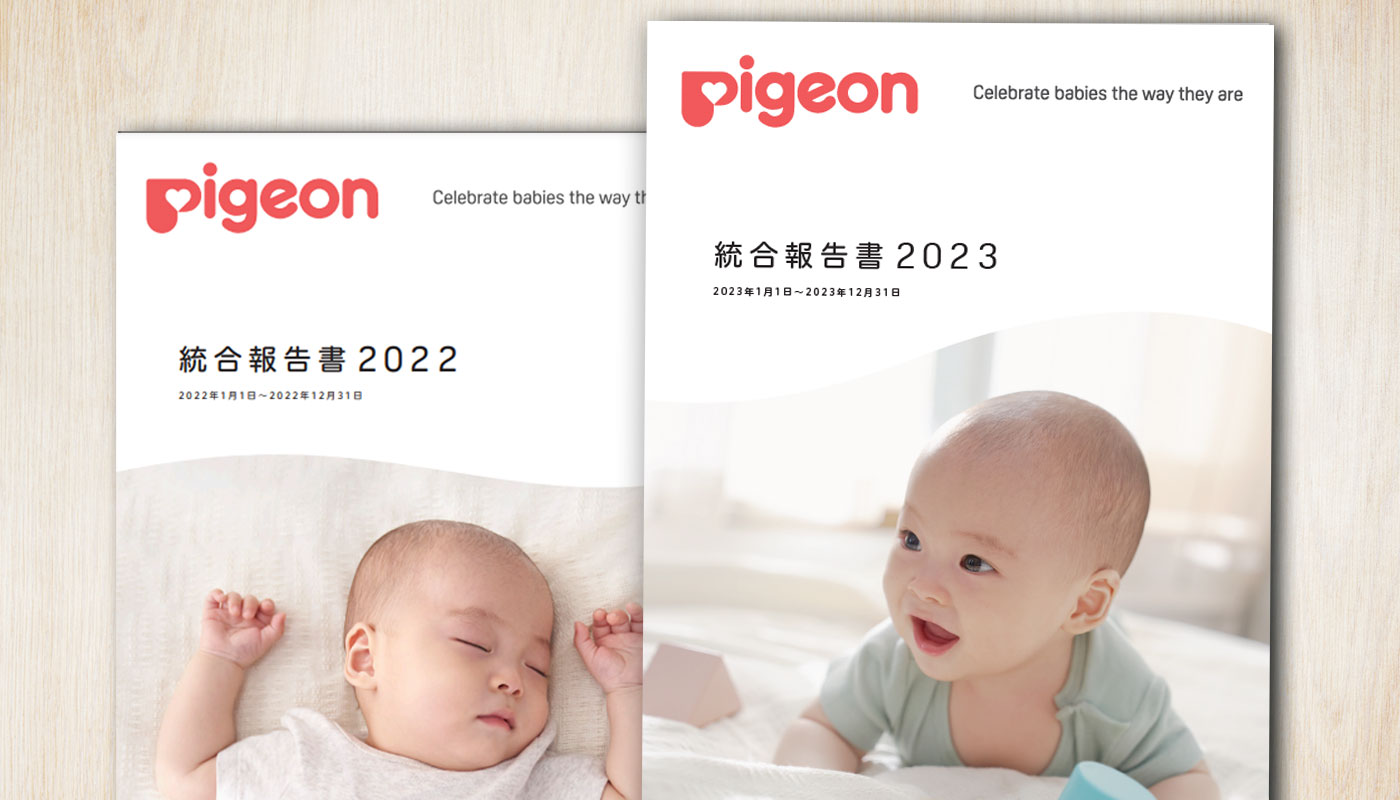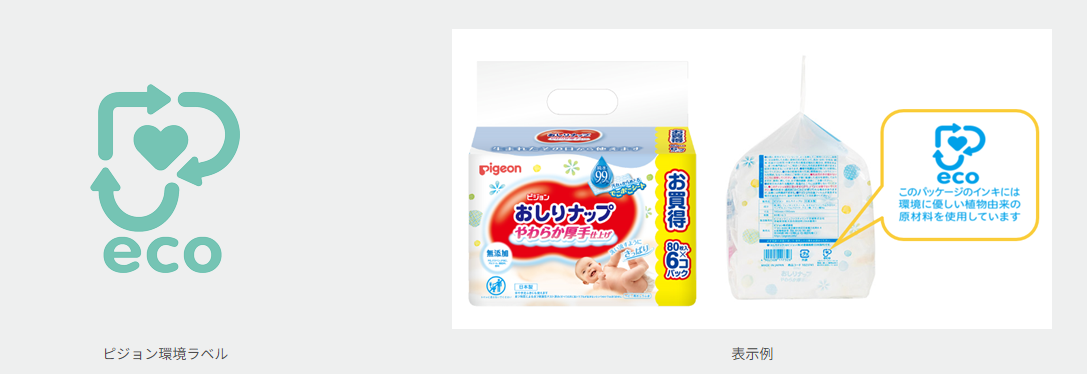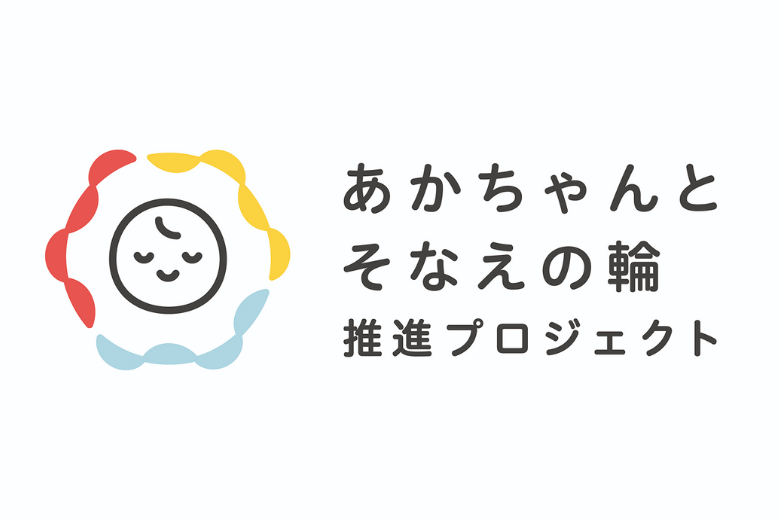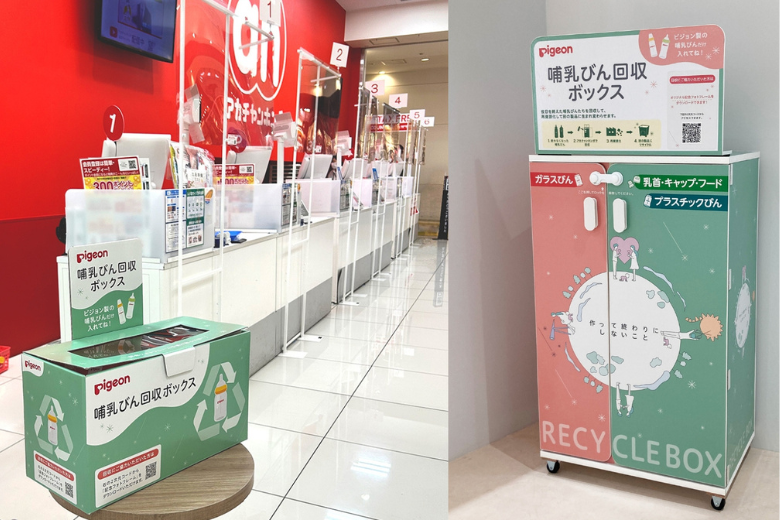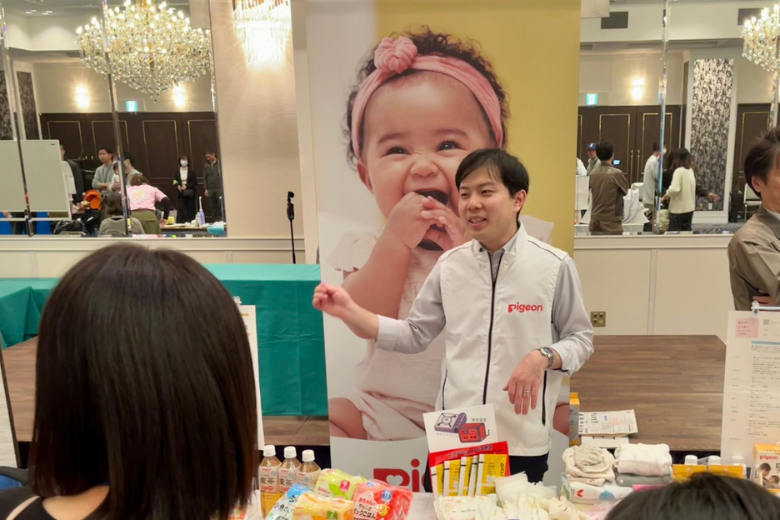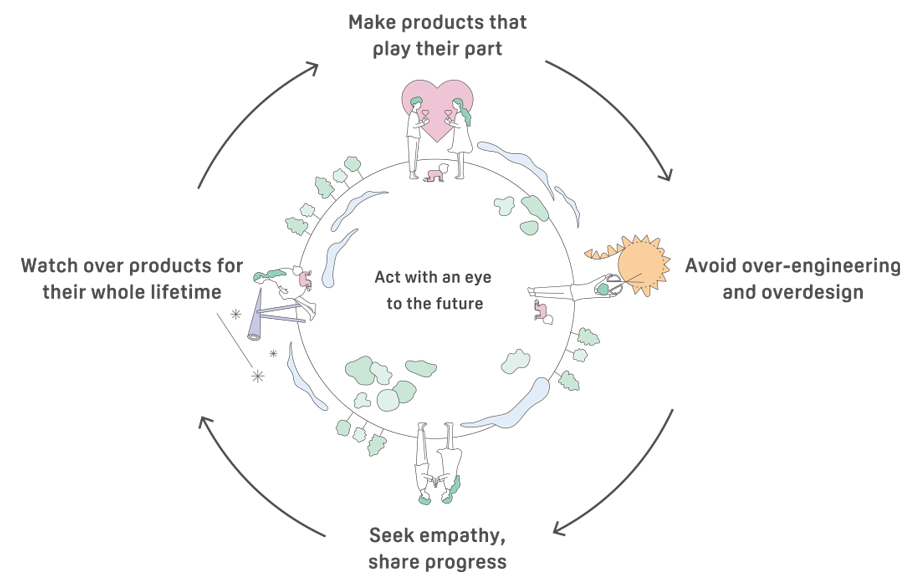Developing Unique Environmental Standards and the Pigeon Eco-Label
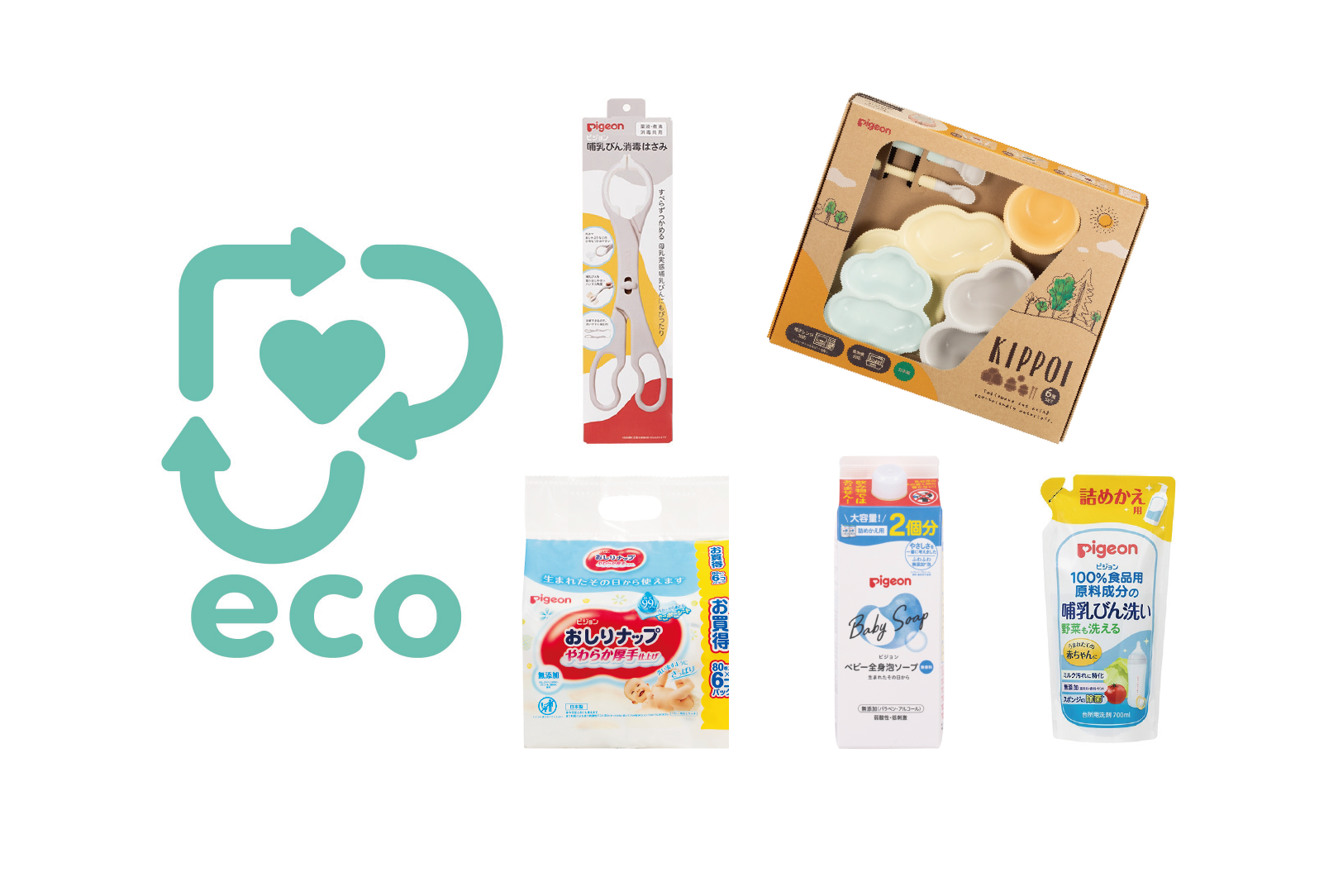

A comfortable world where babies are not troubled by environmental risks
Developing Unique Environmental Standards and the Pigeon Eco-Label
Pigeon’s Sustainable Development Policy calls for “monozukuri for the future.” In order to preserve the environment so that babies born today can enjoy health and happiness decades from now, we engage in monozukuri (manufacturing) with an eye toward resolving environmental problems such as global warming, marine plastic waste, and resource depletion.
The Pigeon Eco-Label
To help customers in Japan choose greener products, we developed the Pigeon Eco-Label Standards. The Pigeon Eco-Label Standards are based on a lifecycle assessment which quantitatively evaluates environmental impact at each stage in a product’s life, including raw materials procurement, manufacturing, distribution, use, and disposal. From February 2021, we began displaying the Pigeon Eco-Label on the packaging of products that meet at least one of the requirements for recognition under these standards.
The Pigeon Eco-Label’s design is based on the Pigeon logo, a “P” consisting of one heart embracing another to represent mother and child. For the Pigeon Eco-Label, the outer heart is made up of recycling arrows, representing a sustainable, recycling-oriented society. Caring for the global environment is part of our efforts to deliver love to people everywhere through products and services.
We have also set ourselves the goal of ensuring that the packaging for all of our baby and maternity products sold in Japan meets the Pigeon Eco-Label Standards by 2025. We call this “Pigeon Package Act 2025.” For more information about the Pigeon Eco-Label Standards, see our website.
2023.11
Related Links
- Home
- Vision of a Baby-Friendly Future
- Developing Unique Environmental Standards and the Pigeon Eco-Label



